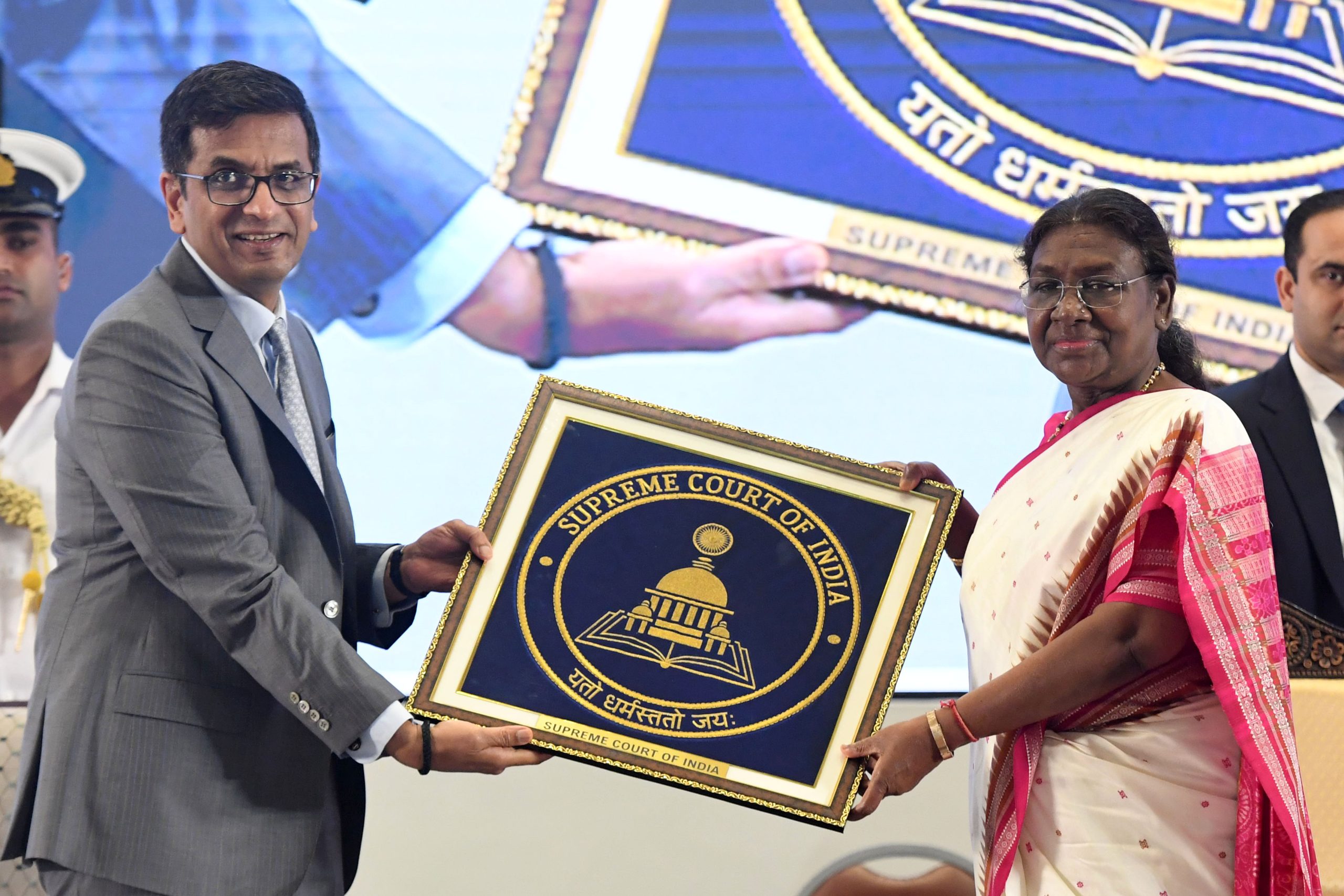New Delhi: The President of India, Smt. Droupadi Murmu, attended the valedictory session of the two-day National Conference of District Judiciary, organized by the Supreme Court of India in New Delhi today. In a significant moment during the event, she unveiled the new flag and insignia of the Supreme Court.
In her address, President Murmu highlighted the Supreme Court’s pivotal role in safeguarding the judicial system of the world’s largest democracy. She lauded the Court’s contributions to Indian jurisprudence, which have earned it a respected place globally. President Murmu expressed her appreciation for the contributions of both past and present members of the Indian Judiciary and was pleased with the initiatives taken by the Supreme Court in its 75th year to strengthen public trust in the judicial system.
The President emphasized that faith in justice is deeply rooted in Indian tradition. Citing a previous address, she reiterated that people often regard judges as embodiments of justice, with every judge and judicial officer bearing the moral responsibility to uphold dharma, truth, and justice. At the district level, this responsibility becomes even more critical as district courts shape the public’s perception of the judiciary. She stressed the importance of providing justice with sensitivity, promptness, and at an affordable cost, stating that this is essential for the success of the judiciary.
President Murmu acknowledged the recent improvements in infrastructure, facilities, training, and human resources at the district level but noted that more needs to be done. She expressed confidence that progress would continue on all fronts of judicial reform.
Addressing the persistent issue of case backlogs, the President highlighted the significant challenge posed by cases pending for over 32 years. She urged stakeholders to prioritize solutions to this problem and suggested that special Lok Adalat weeks be organized more frequently to help reduce the backlog. President Murmu expressed optimism that the discussions on case management during the conference would lead to practical outcomes.
The President also called for considering a localized justice system, akin to the roles of Panchayats and Municipalities in the legislative and executive domains. She suggested that providing justice in local languages and under local conditions could help achieve the ideal of accessible justice.
She pointed out that the judiciary, government, and police administration must work together to address issues related to evidence and witnesses. President Murmu expressed concern that delayed court decisions, especially in heinous crimes like rape, can erode public confidence in the judicial process.
President Murmu also touched upon the plight of the poor and marginalized, who often fear engaging with the justice system. She stressed the need for measures to alleviate the mental and financial burdens faced by those who seek justice, particularly in cases where the culture of adjournment exacerbates their struggles.
The President highlighted the importance of addressing the needs of children whose mothers are imprisoned, focusing on their health, education, and overall well-being. She also underscored the necessity of reforming juvenile delinquents, providing them with life skills, and ensuring they receive free legal aid.
In conclusion, President Murmu expressed satisfaction with the Supreme Court’s directive to implement the provisions of the Bharatiya Nagarik Suraksha Sanhita retrospectively, including the release on bail of first-time accused individuals and those who have served one-third of their maximum sentence. She voiced her confidence that the prompt implementation of this new criminal justice system would herald a new era of justice in India.





